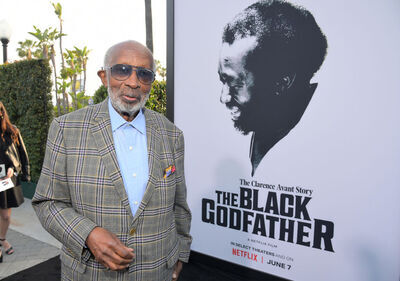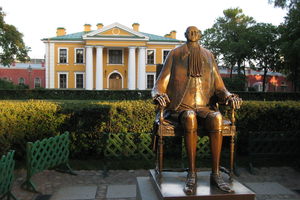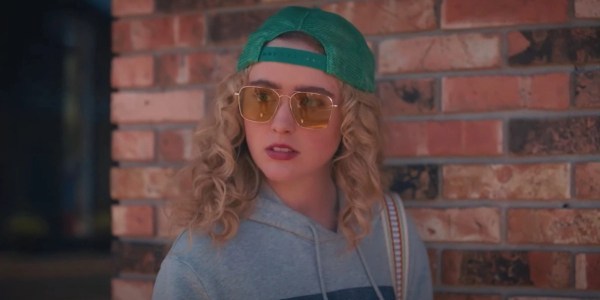London Film Festival 2020: Interview With SUPERNOVA Writer-Director Harry Macqueen
Watching Harry Macqueen’s sophomore film Supernova is like hugging someone you love for the last time. It is a warm, rapturous embrace, but one that is filled with immeasurable sadness. It is not a SUPERNOVA or hard-edged experience, but a pleasant one; so pleasant, in fact, that you never want it to end. It is a tonal trick of some skill that Macqueen has pulled off with this film. Thankfully, he spoke to Film Inquiry about just how he did it.
“I want to be remembered for who I was, not who I am going to become”
Supernova, a step up in profile and pedigree from debut feature Hinterland, is a gentle and moving work from Macqueen that may well bring him to the attention of the mainstream film industry and awards voters. His camera follows Sam (Colin Firth) and Tusker (Stanley Tucci), a couple of 20 years or so who are taking a trip across the English countryside with Sam’s family home one of the destinations. Along the trip it becomes increasingly clear that Tusker is struggling with young-onset dementia. As his condition worsens, he loses a grip on who he is, and approaches a difficult future for both he and Sam.
The emotional and practical difficulties faced by Sam and Tusker are beautifully, subtly sketched out in Macqueen’s script, leaving both characters with some big decisions to make about their future together. Unlike a lot of film characters suffering from dementia, Tusker is still quite young. Somewhere in his 50s, he is physically fit and generally has the energy of a much younger man. The decision to centre the story around someone with young-onset dementia came from a personal place for Macqueen. “A work colleague, who was in her 50s, had young-onset dementia,” he says, “and I just got really interested in it.”
His research led to the realisation that the condition is “not common, but more common than you might think”. The mission of the film then became not just to movingly portray the lives of someone living with early-onset dementia and those around them, but to raise awareness of it, “and all the brilliant work that goes on around it.” More than anything, Macqueen says telling this story just felt like the best fit for him to tell as a filmmaker: “It felt most honest to focus on an age group that I had some experience of.”
Another key detail in Supernova’s depiction of dementia is that it is Tusker, not Sam, who is battling a disease. As the above quote demonstrates, Supernova is very concerned with the idea that dementia can take a life before it is supposedly ‘over’; “nobody should have to mourn someone while they’re still alive” Tusker tells Sam’s sister Lilly. We are presented with the idea that dementia changes someone into a different person, taking away the personality that makes them who they are. It is perhaps natural, then, that Macqueen chose the bigger of the two personalities to be the one afflicted. Tusker is a raconteur, full of wit and charm, the extrovert foil to to Sam’s reserved, slightly bumbling personality.
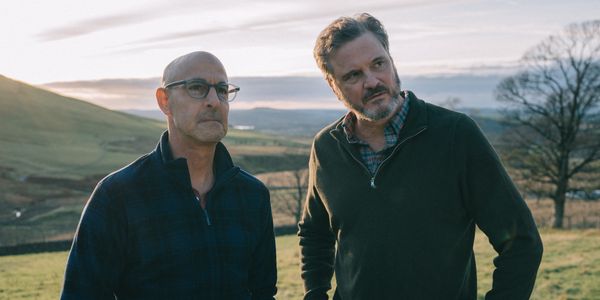
“I thought, quite simply,” explains Macqueen, “that if you had a character who is full of life but is painfully aware of his mortality, then that would be interesting. It’s a contradiction, almost. That’s one of the joys of having Stanley play that role as well. He brings so much fun and humour to everything he does that it felt extra tragic, to have someone who is dying but is so full of the joys of living.”
The Dream Team
Without taking away from his skill as a writer and a director, the critical success Macqueen has already had at festivals around the world with Supernova is surely owing in large part to the to-die-for casting of Tucci and Firth. He would be the first to admit it. “We thought long and hard about who to approach initially,” he says. “We were very interested from early on in the idea of having two actors who were very different in their style, and also hopefully from different parts of the world too. Because it just adds a different energy to the dynamic.” No matter how early on they had the idea, Macqueen and his team would likely not have predicted how easy getting the dream pairing together would prove to be.
“We worked with this amazing casting director called Shaheen Baig, and we went to Stanley first and to tell you the truth it was really easy. He just loved the script, and he watched my first film, and then we met and got on really well. I have to pinch myself when I say it but it just happened very quickly and very easily after that.” Tucci in the bag, casting Sam came just as quickly, with the star himself originating the idea. “Stanley asked if I would think about Colin for the other role, which was obviously incredible,” explains Macqueen. “I always wanted to work with actors and who had a shared history anyway, and they’ve known each other for years. It was kind of ideal really.”
His stars cast, Macqueen then just had to let them shine, a harder task than the film’s effortless feel would suggest. As the director acknowledges, the film is deliberately light on visual flair, instead letting the actors and gorgeous scenery do the work. “It is a lot harder than it looks,” Macqueen laughs, “With a story like this that is very character-driven and actor-led, with a huge amount of intimacy involved, it felt really important not to get in the way of that. We had to be quite delicate about how we shot it, how we edited it, how we worked as filmmakers.”
They say that a child actor is only as good as their director, and perhaps that never fully stops being true. With performances in the class of those in Supernova, the director surely has to know how to handle an actor, however good they are. “Colin and Stanley are, as I hope you agree, incredible in the film,” suggests Macqueen. “One of the reasons they’re incredible is because we gave them the space to be incredible. That’s really important when you’re making stuff like this, to capture it in its raw, uninhibited form.”
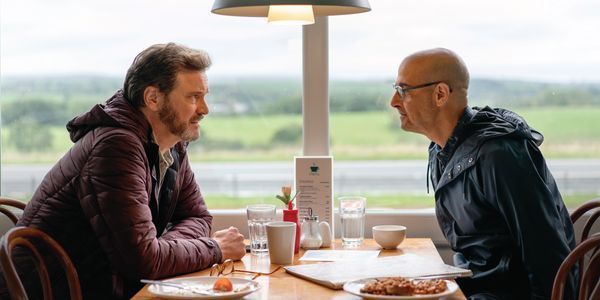
Macqueen’s reserved, performance-heavy filmmaking style perhaps comes from his own background as an actor, with him having taken the lead role in his first film. Hinterland, the story of two childhood friends reuniting in their 20s, had Macqueen acting, directing, writing, and producing. He probably brought his own lunch as well. Asked if he is an ‘actors’ director’, he suggests, “I hope I’m an everything director, because I like working with everyone. But certainly as a writer, I write for actors.
“You can’t help but want to do that when you’ve been an actor, and I still act a bit now. You just want to make stuff that you want to be in. You want to build and shape characters that you would be desperate to play yourself. So I think it really helps in that regard, and it really helps when you’re working with actors too. Apart from anything else, you have a heads up on the processes, and the shorthand in terms of the language that actors tend to use. I haven’t much experience as a director so Colin and Stanley had to put an enormous amount of trust in me, and I think one of the reasons they probably did that was because I have been in their shoes to some degree. We have an instant shared history there, which I think is important.”
With Firth having produced before and Tucci’s breakout coming as a triple-threat with 1996’s Big Night, Macqueen also had the pleasure of them having an understanding of his perspective as an actor-turned-filmmaker. “It just helps to work with someone that experienced sometimes. Colin and Stanley have been on film sets for forty years each. I learned quite a lot from them and I hope they learned a bit from me too. They were just really supportive and trusting and that’s all you can ask for really.”
On Home Turf
Despite its simple camera angles and naturalistic approach, Macqueen’s film remains undeniably gorgeous, thanks to veteran DP Dick Pope’s shots of the country landscape. To British viewers, the backdrop to this story is perhaps a recognisable one, and it is one that places both Macqueen and Sam on home turf. “I never intended to shoot the film out of Britain, partly because I know it best,” says Macqueen, adding that, “the film I think has a political message about certain issues as well, life choices being one of them, and I think it was important to make that statement in the UK.” As for the decision to have Tusker be the character away from his homeland, Macqueen says: “It felt like when you’ve got a terminally ill person who is also not in their country of origin, there’s a slight extra degree of drama that could be mined from that.”
That said, both men are away from home for the film’s entirety, always on the move as they head for a piano concert where Sam is the headline act. “I wasn’t really interested in the domestic drama of two people in their own home, and I think what road trip movies give you is propulsion and a sense of journey,” Macqueen says. The vast rural setting added to the drama too, he felt: “To place this ‘small’ story about these two lovely men within a massive, cinematic visual context felt like a really interesting thing. It was something I tried to achieve with my first film, too, which was resolutely a two-hander, intimate, focussed film but in a massive landscape.”
With a first film a well-received micro-budget indie, and now a second film a very well-received festival darling with two of the industry’s best-loved actors on board, it’s an exciting time to be Harry Macqueen. Supernova is an incredible achievement in maintaining its light, unobtrusive touch throughout, even in the most heart-rending moments. They are moments that could well see Firth and Tucci receiving a lot of awards buzz, something they are both well used to. Before long Harry Macqueen might have to get used to it too.
Supernova is a moving portrait of a couple whose love is tested by dementia. What are other great cinematic depictions of dementia? Let us know in the comments!
Does content like this matter to you?
Become a Member and support film journalism. Unlock access to all of Film Inquiry`s great articles. Join a community of like-minded readers who are passionate about cinema – get access to our private members Network, give back to independent filmmakers, and more.
Join now!
